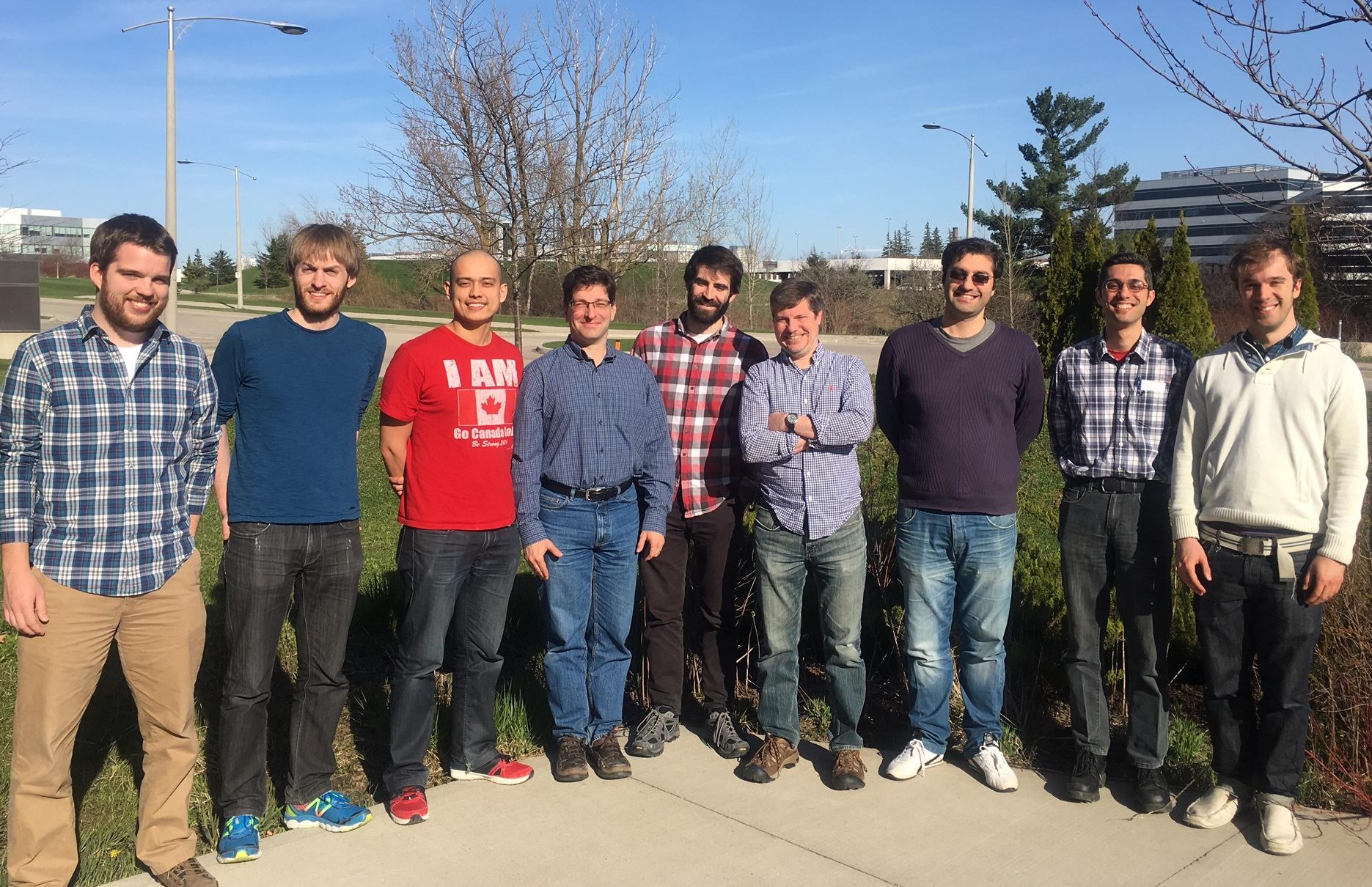
Outside on a sunny afternoon besides the RAC-I building (2016). From left: K. Willick, S. Walker, E. Barrera, F. Sfigakis, B. Buonacorsi, J. Baugh, M. Khoshnegar, K. Gharavi, G. Holloway. Click to ENLARGE.
As classical information processing has shaped today’s society, technology and economy through advances in computing and communication, harnessing quantum information will lead to fundamentally more powerful devices that benefit and transform society. The power of quantum information lies in the mathematical structure of quantum mechanics, in which the non-classical concepts of superposition, entanglement and quantum parallelism arise. Not only are quantum algorithms such as Shor’s more powerful than their classical counterparts, quantum information processing (QIP) is the key to bypassing the classical barrier to miniaturization: the emergence of quantum behavior at the nanoscale (atomic) level. Taking the concepts of quantum information theory and implementing them in the laboratory is crucial to the development of quantum technologies that will dominate in the 21st century. 
This experimental program focuses on furthering the science and technology of quantum devices, by developing prototypes and quantum control methods necessary for scalable QIP. Particular focus is on using the particle property of spin to robustly encode quantum information. Realizing spin-based quantum bits (qubits) in the solid-state offers a technologically attractive path to scalable quantum devices: this approach builds on the experience of the semiconductor electronics industry, and is poised to benefit from the use of novel nanomaterials such as nanowires and carbon nanotubes. We are putting in place a comprehensive research program aimed at addressing the fundamental and technical challenges to realizing building block quantum devices. These efforts will expand current scientific knowledge and create new platforms for technological innovation.
Ongoing projects explore new pathways to scalable quantum devices, such as trapping and manipulating single electron spins in quantum dots; other work develops new approaches to spin-based QIP in molecular crystals, manipulating nuclear spin qubits via electronic spins (through the hyperfine coupling) and coupling such nodes to each other via electron-electron dipolar interactions; other work explores the use of magnetic molecules to store and process quantum information.
Here is a link to a Waterloo Stories profile of Professor Baugh and his research.
